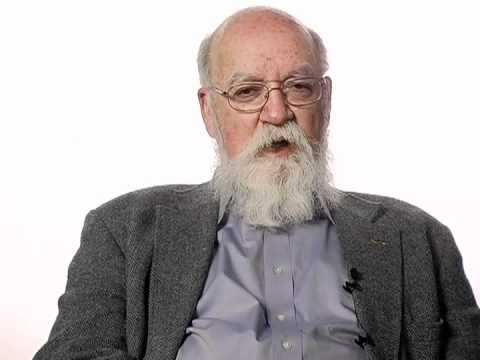Big Think
Daniel Dennett Reveals His Favorite Philosopher.
Question: Why Daniel Dennett Reveres David HumeDennett: First of all I think he was very good company and I think and I love his attitude and his style but I think he had a reasonable skepticism that peeled off layers of ideology and precept position in a very useful way and I think human causation is brilliant. I think human’s dialogue is concerning natural religion are just wonderfully brilliant. I think, I think that he saw dimly the scientific world that was beginning to emerge from Newton and he was in a way following luck trying to open up the exploration for the mind and he had lots of great insights that he developed with very acutely.
Question: Why Daniel Dennett Reveres David HumeDennett: First of all I think he was very good company and I think and I love his attitude and his style but I think he had a reasonable skepticism that peeled off layers of ideology and precept position in a very useful way and I think human causation is brilliant. I think human’s dialogue is concerning natural religion are just wonderfully brilliant. I think, I think that he saw dimly the scientific world that was beginning to emerge from Newton and he was in a way following luck trying to open up the exploration for the mind and he had lots of great insights that he developed with very acutely.
Source




Dennett is one of the most underappreciated intellectuals of our era. This was a trivial topic, but it's nice to see who he holds in high regard.
Caught a mistake in your transcript: "precept position" should read "presupposition" ; it makes a little more sense that way 🙂
Why does he always have that fish brooch on his blazers??
The ending music was like "Alright, that's enough, we're trying to keep this under a minute and a half."
And the result? 1:31
Hume is the guy who said when object X strikes object Y and object Y moves you cannot see the causation of that movement. Only a philosopher could say that with a straight face and without laughing. But the really funny thing is that people took him seriously, and even funnier still is that hundreds of years later "philosophers" like this chap still take such nincompoop balderdash seriously.
What!
The least of the horsemen, I think. Everything he says sounds pretty vague and aimless, like he makes it up on the spot. He needs to go more into the gritty deep of philosophical analysis, like Sam Harris.
Hume argued that there was no consciousness, no self. But what Dennett studiously ignores is that Hume himself concluded that his argument was wrong. That there exists an inner wakefulness in mind Hume saw but could not explain. Either could Kant. Kant, too, confessed his inability, as did Hume, to explain 'the obvious.' Dennett explains wakefulness, consciousness away. Might as well 'explain' that complex molecules are
nothing but atoms or plants are nothing but dirt. The idea of creative emergence, wholes being more than the sum of their parts, obvious to most of the scientific community, Dennett finds vacuous.
This dude looks like SANTA CLAUS!!!
Hume was a fool